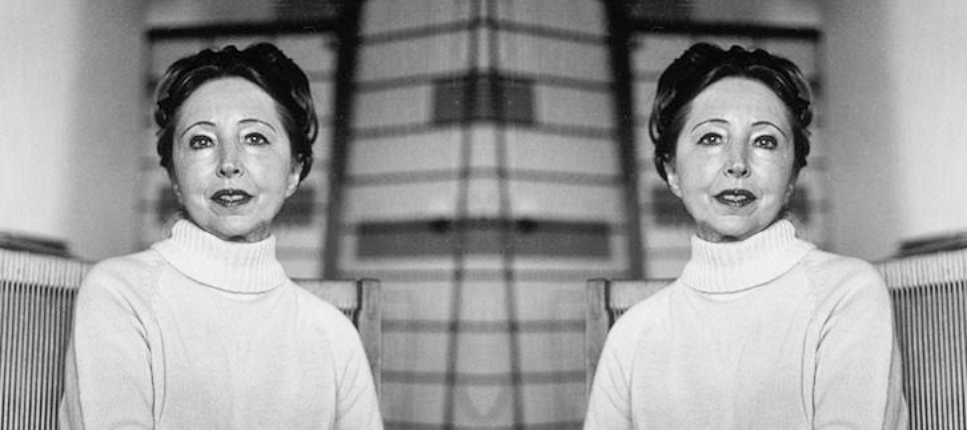TODAY: In 1977, Anais Nïn dies at 73.
-
Buckle in for our 217 (!) most anticipated books of 2023. | Lit Hub
-
“It’s a real moment of maturation to say, ‘My time here is short—what can I do the most beautifully?’” George Saunders talks about his first love, songwriting (and why he gave it up). | Lit Hub Music
-
Ross Benjamin on Kafka’s diaries: “Often it cannot be determined in a given passage whether Kafka is registering a private experience, crafting fiction, or transforming the one into the other.” | Lit Hub Criticism
-
Why bad celebrity apologies are so entertaining. | Lit Hub Humor
-
Laura Zigman’s Small World, Janet Malcolm’s Still Pictures, Leigh Bardugo’s Hell Bent, and Paul Auster’s Bloodbath Nation all feature among the Best Reviewed Books of the Week. | Book Marks
-
The most anticipated crime fiction of 2023 to get you through the long winter (and spring, and early summer). | CrimeReads
-
Tim Judah considers the future of Ukraine. | NYRB
-
“Creative partnerships can be a challenge for fragile egos—but they also provide a lifeline in difficult times.” Lauren LeBlanc ruminates on Elizabeth Hardwick, Darryl Pinckney, and literary relationships. | The Atlantic
-
“Life haunted by its more beautiful sister-life!” Remembering Charles Simic. | The Paris Review
-
“His auto poesy gives us his life not merely as a collection of facts, but as an imminent reality.” Kathryn Winner on the recordings Allen Ginsberg used to compose “The Fall of America.” | The New Yorker
-
Take a look inside the New York Public Library’s vast archive of menus from around the world. | TASTE
-
“To her everlasting credit, she never wavered in her love of literature, the only thing that lifted her from the permanent chaos in her head.” Vivian Gornick considers a new biography of Jean Rhys. | The New Republic
-
Laura Miller dives into the wild story of the romance novelist who allegedly faked her own suicide. | Slate
-
“The game is rigged—the prize game, anyway.” Dan Sinykin breaks down the elitism at the heart of literary awards. | Los Angeles Review of Books
-
Olivia Rutigliano considers Dracula and Bones and All, which “flips the conventions of vampirism to personify the horrors of a declining America.” | Bright Wall/Dark Room
-
Ian Maloney reflects on Jesus’ Son, first published 30 years ago: “In reading it this time, I saw it a hero’s journey.” | Vol. 1 Brooklyn
-
“The unease that saturates Didion’s most famous work also permeates Ellis’ novel.” Charles Arrowsmith on Bret Easton Ellis’ oeuvre. | Los Angeles Times
-
How did Mike Pence’s book become a best-seller? Oh right, because his PAC spent $91,000 buying copies. | Forbes
-
“It’s fine, but it’s not for us: this is what we often conclude in group chats where we send each other links to the latest books and coverage about our hometown.” Jaime Chu on the state of Hong Kong’s anglophone literature. | The Baffler
-
“There are few reporters you’d rather see on the other side—the wrong end—of a Q&A.” Max Abelson considers Janet Malcolm’s interviews. | n+1
-
Rebecca Solnit makes the case for telling new stories of the climate crisis, “stories that motivate people to do what it takes to make the world we need.” | The Guardian
Also on Lit Hub:
The time Russell Banks fled a writing residency with Nelson Algren • Pico Iyer on the wonders and contentions of Kashmir • Toni Morrison on breathing life into clichés • How T. S. Eliot (literally) composed The Waste Land • Sean Adams on Seinfeld and the simple bliss of the three-camera sitcom • Training schoolchildren in the art of cyber war • What those escaping slavery found in Boston • Suzanne Berne on why we write (and read) novels • Z.L. Nickels examines writing about God in works by Eliot Weinberger, Claire Luchette, Lauren Groff, and Kirstin Valdez Quade • Michelle Nijhuis on Turn Every Page, the new film about writer-editor duo Robert Caro and Robert Gottlieb • Janet Manley on making space for mother-artists • The birth of the reproductive justice movement • Katie Fustich recounts her year of reading romance novels • Finding a long-lost family member in the legendary Sleepy Hollow Cemetery • Peter Cole on making the poetic abstract concrete
